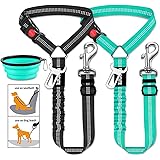Crop irrigation is a crucial aspect of agriculture, especially in areas where rainfall may be insufficient for optimal crop growth. Proper irrigation techniques can significantly impact crop yields and overall farm productivity. One of the keys to successfully mastering crop irrigation is to employ techniques that maximize water usage efficiency and minimize waste. Here are some tips for mastering crop irrigation and maximizing yields.
1. Soil moisture monitoring: Before deciding on an irrigation schedule, it is important to know the moisture content of the soil. This can be done using various tools such as a soil moisture meter or by simply observing the soil condition. Monitoring the soil moisture levels will help in determining the right time to irrigate and avoid overwatering, which can lead to water wastage and nutrient leaching.
2. Irrigation scheduling: Establishing a regular irrigation schedule based on the specific water needs of each crop is essential for maximizing yields. Different crops require varying amounts of water at different growth stages. It is important to tailor the irrigation schedule to suit the specific needs of each crop to avoid under or overwatering.
3. Drip irrigation: Drip irrigation is a highly efficient irrigation technique that delivers water directly to the roots of the plants. This method helps in reducing water waste through evaporation and runoff, as well as minimizing weed growth and disease spread. Drip irrigation systems can be customized to each individual crop’s water needs, making it an ideal choice for maximizing yields.
4. Mulching: Applying mulch around the base of plants helps in retaining soil moisture by reducing evaporation. Mulch also helps in regulating soil temperature, suppressing weed growth, and improving soil health. Using mulch in combination with an efficient irrigation system can lead to higher crop yields by ensuring that plants receive a consistent supply of water and nutrients.
5. Fertigation: Fertigation is the practice of delivering fertilizer through the irrigation system. This technique ensures that plants receive a continuous supply of nutrients along with water, leading to better nutrient uptake and improved crop growth. Fertigation also helps in reducing fertilizer wastage and leaching, making it a sustainable approach for maximizing crop yields.
6. Irrigation efficiency: Regular maintenance and monitoring of irrigation systems can help in improving water usage efficiency and maximizing yields. Leaks, clogs, and other malfunctions in the irrigation system can lead to water wastage and uneven distribution. Regular inspection and maintenance of the irrigation system can help in optimizing water use and ensuring that crops receive the right amount of water for optimal growth.
In conclusion, mastering crop irrigation is essential for maximizing yields and ensuring the overall success of a farm. By employing efficient irrigation techniques, such as soil moisture monitoring, drip irrigation, mulching, fertigation, and regular maintenance of irrigation systems, farmers can optimize water usage, improve crop health, and ultimately increase yields. Implementing these techniques will not only benefit the farm economically but also contribute to sustainable agriculture practices.










